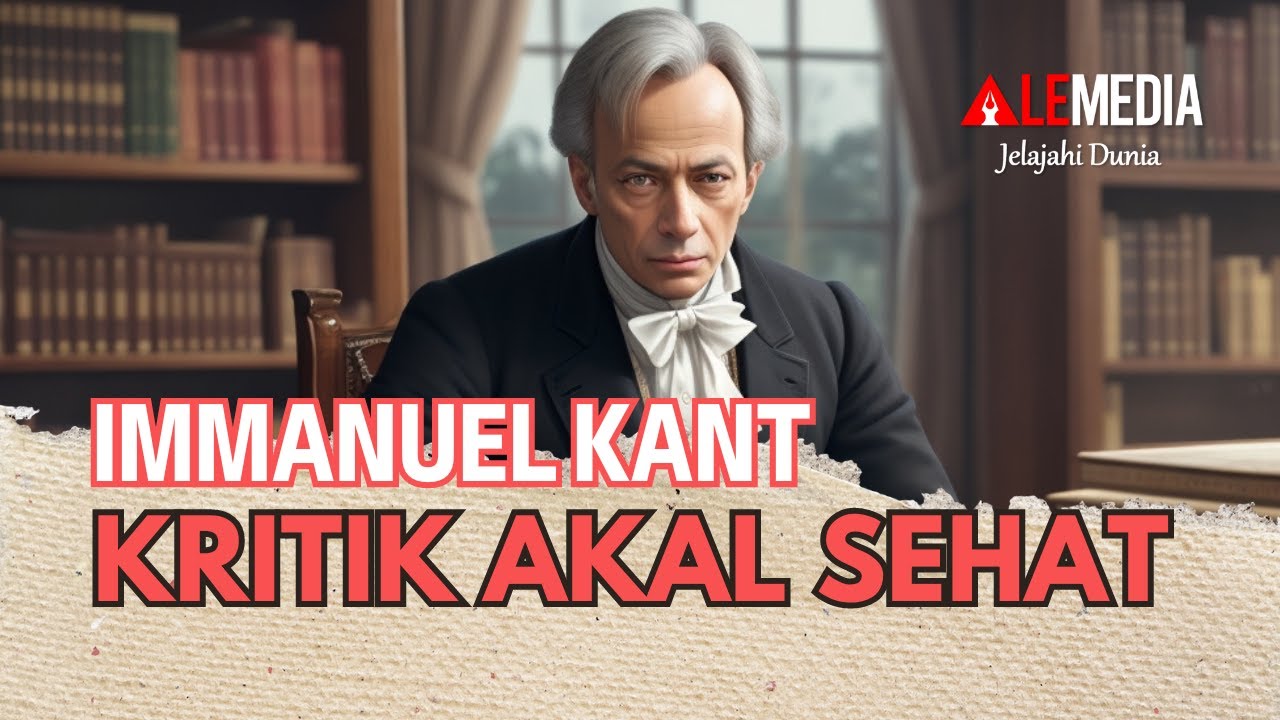Immanuel Kant's radical philosophy
Summary
TLDRThis video explores the profound influence of Immanuel Kant, a pivotal philosopher whose ideas challenge traditional thinking and advocate for individual enlightenment. Born in Königsberg, Kant's call to 'dare to know' emerged in a time of authoritarianism, emphasizing the importance of reason and moral law without reliance on divine authority. His concepts, such as the Categorical Imperative and the vision for perpetual peace, resonate today, highlighting issues of justice and global citizenship. Despite his shortcomings, including controversial views on race, Kant's legacy remains vital in discussions of ethics and human dignity.
Takeaways
- 📚 Immanuel Kant, a pivotal philosopher, emphasized the importance of using one's own reason and thinking independently with his motto 'Dare to know!'.
- 🌍 Kant believed that injustice in one place is felt everywhere, highlighting our interconnectedness as a society.
- 🔍 He encouraged people to be courageous and think for themselves, challenging the authoritarian structures of his time.
- 🧠 Kant's magnum opus, 'Critique of Pure Reason', published at age 57, revolutionized modern thought and philosophy.
- ⚖️ His Categorical Imperative urged people to act in ways that respect others as ends in themselves, laying the groundwork for modern ethics.
- 🕊️ Kant's ideas on perpetual peace and international cooperation were groundbreaking, suggesting that treaties alone are insufficient for lasting peace.
- 🗳️ He shared ideals of equality and self-governance, influencing democratic thoughts and movements, including the French Revolution.
- ⚠️ Despite his contributions, Kant held problematic views on race, reflecting the prejudices of his time, which complicate his legacy.
- 🌐 Kant advocated for global citizenship and the right of refugees to seek shelter, emphasizing the importance of human dignity.
- 🌟 Ultimately, Kant saw hope as a moral obligation, encouraging continued efforts for justice and peace even in the face of despair.
Q & A
Who was Immanuel Kant and why is he considered significant?
-Immanuel Kant was a philosopher whose ideas transformed modern thought. He is significant for advocating the use of reason and critical thinking, encapsulated in his motto 'Dare to know!'
What was the historical context in which Kant developed his ideas?
-Kant's ideas emerged in an era dominated by absolutist rulers and authoritarianism, particularly in the Kingdom of Prussia, where questioning authority was risky.
What does Kant mean by 'self-imposed immaturity'?
-Kant refers to 'self-imposed immaturity' as the failure of individuals to think for themselves, often due to fear of authority or societal pressures.
What is the Categorical Imperative and its importance?
-The Categorical Imperative is Kant's central ethical principle, which states that one should act only according to that maxim which can be universally applied. It emphasizes moral reasoning independent of divine authority.
How did Kant view the relationship between individuals and society?
-Kant believed that individuals should engage with each other and the world, emphasizing the importance of moral laws derived from human reason, which fosters social connectedness and mutual respect.
What was Kant's perspective on war and peace?
-Kant was an advocate for peace and proposed ideas in his essay 'Perpetual Peace' that emphasized international treaties and cooperation among states to prevent war.
What controversial views did Kant hold regarding race?
-Kant expressed racist views in his writings, claiming superiority of certain races, which contradicts his principle of universal human dignity based on reason. These views are now considered unacceptable.
How did Kant's ideas influence contemporary philosophy and political thought?
-Kant's emphasis on individual rights, justice, and moral responsibility laid the groundwork for modern liberal thought, impacting discussions on equality, governance, and human rights.
What was Kant's stance on the role of hope in human life?
-Kant viewed hope not merely as an emotion, but as a moral obligation essential for perseverance in the pursuit of justice and peace, even in challenging circumstances.
In what ways did Kant envision a more just world?
-Kant envisioned a just world through the principles of equality, the right to world citizenship, and the need for global cooperation to achieve fairness and dignity for all people.
Outlines

此内容仅限付费用户访问。 请升级后访问。
立即升级Mindmap

此内容仅限付费用户访问。 请升级后访问。
立即升级Keywords

此内容仅限付费用户访问。 请升级后访问。
立即升级Highlights

此内容仅限付费用户访问。 请升级后访问。
立即升级Transcripts

此内容仅限付费用户访问。 请升级后访问。
立即升级浏览更多相关视频

IMMANUEL KANT 🔥 KRITIK AKAL SEHAT 🔥 #ImmanuelKant #pemikirankritis #historyb

AUFKLARUNG - Zaman Pencerahan di Eropa [Materi Sejarah Peminatan Kelas XI SMA/MA]

Epoche der Aufklärung | DiB

Filosofia - Kant e l'Illuminismo - Maurizio Ferraris

Sobre ética e chocolates | Lúcia Helena Galvão | TEDxPassoFundo

Renaissance dan Aufklarung
5.0 / 5 (0 votes)
